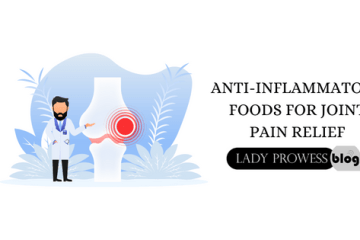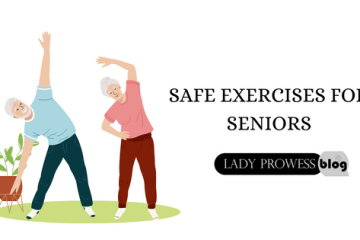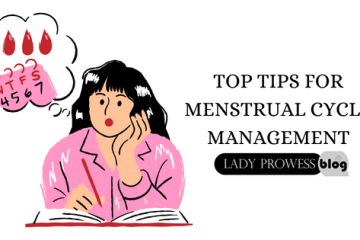Healthy aging tips and techniques
As you age, it’s important to adopt healthy aging tips and techniques to maintain vitality and enhance your overall well-being.
In this article, we will discuss some of the best ways to promote healthy aging and improve your quality of life as you get older.
- Exercise regularly: Exercise is one of the most important things you can do to promote healthy aging. It helps keep your body strong and healthy and can help prevent conditions such as obesity, heart disease, and stroke.
- Eat a balanced diet: A healthy diet is essential for aging well. Make sure to include plenty of fruits, vegetables, and whole grains in your diet, and avoid processed foods and sugary drinks.
- Stay mentally active: Maintaining a mentally active lifestyle is key to healthy aging.
Nutrition for Healthy Aging
As we age, maintaining proper nutrition becomes increasingly important for promoting healthy aging and overall well-being. Here are some tips and techniques to ensure older adults are eating for vitality:
Eating for Vitality in Older Adults
Maintaining a healthy diet is crucial for promoting vitality and overall well-being in older adults. Here are some key tips to ensure proper nutrition and vitality:
- Include a variety of nutrient-dense foods: Opt for a balanced diet that includes a range of fruits, vegetables, whole grains, lean proteins, and healthy fats. These foods provide essential vitamins, minerals, and antioxidants that support overall health and vitality in older adults.
- Mind portion sizes: As we age, our metabolism tends to slow down, making portion control even more important. Be mindful of the portion sizes and adjust them accordingly. Focus on smaller, frequent meals throughout the day to maintain energy levels and support nutrient absorption.
- Hydrate adequately: Staying hydrated is crucial for healthy aging. Older adults may have a decreased sense of thirst, so it’s essential to drink enough fluids throughout the day. Aim for at least 8 cups of water or other hydrating beverages daily.
- Reduce sodium intake: Excessive sodium intake can contribute to high blood pressure and other health issues. Opt for low-sodium options when choosing processed foods, and use herbs and spices to enhance the flavor of your meals instead.
- Seek professional guidance: Consulting a registered dietitian can be beneficial in crafting a personalized and nutritious meal plan. They can provide guidance on specific dietary needs and address any concerns related to age-related health conditions.
Guidelines for Nutritious Eating
As we age, it becomes increasingly important to prioritize our nutrition to support healthy aging. Here are some guidelines to help older adults eat nutritiously and maintain vitality:
- Eat a balanced diet: Include a variety of fruits, vegetables, whole grains, lean proteins, and healthy fats in your meals. Aim for a colorful plate filled with different food groups to ensure you’re getting a wide range of nutrients.
- Focus on nutrient-dense foods: Choose foods that are rich in vitamins, minerals, and antioxidants. Opt for leafy greens, berries, nuts, seeds, lean meats, fish, and legumes. These foods can help support immune function, reduce inflammation, and protect against chronic diseases.
- Stay hydrated: Adequate hydration is essential for overall health, so make sure to drink enough water throughout the day. Dehydration can contribute to fatigue, constipation, and impaired cognitive function.
- Limit processed foods and added sugars: Processed foods often contain high amounts of unhealthy fats, sodium, and added sugars. These can increase the risk of heart disease, obesity, and other health issues. Instead, choose whole, unprocessed foods whenever possible.
- Adjust portion sizes: As we age, our metabolism slows down, and our calorie needs may decrease. Be mindful of portion sizes to prevent overeating. Use smaller plates and bowls to control portion sizes, and listen to your body’s hunger and fullness cues.
- Consider special dietary needs: Certain health conditions or medications may require specific dietary adjustments. Consult with a healthcare professional or registered dietitian to create a personalized nutrition plan that meets your individual needs.
“Eating a variety of nutrient-dense foods can provide the necessary vitamins and minerals for healthy aging.”
“Hydration is key for maintaining energy levels and promoting proper bodily functions.”
Exercise for Healthy Aging
As adults age, staying physically active becomes increasingly important for maintaining overall health and well-being. Regular exercise offers numerous benefits for older adults, both physically and mentally. Here are some key points to consider when it comes to exercise and healthy aging:
Benefits of Exercise for Older Adults
Regular exercise plays a crucial role in promoting healthy aging and maintaining overall well-being in older adults. Here are some key benefits of exercise for this age group:
Improved Physical Health:
- Increased stamina and energy levels
- Reduced risk of chronic illnesses such as heart disease, diabetes, and osteoporosis
- Enhanced cardiovascular health and blood circulation
- Increased muscle strength and flexibility
- Improved balance and coordination, reducing the risk of falls and injuries
Enhanced Mental Health:
- Improved mood and overall mental well-being
- Reduced symptoms of anxiety and depression
- Increased cognitive function and memory
- Better stress management and emotional resilience
Social Engagement:
- Exercise provides opportunities for social interaction and connection with others
- Joining group fitness classes, walking clubs, or sports teams can help older adults stay connected and build new meaningful relationships
Maintenance of Independence:
- Regular physical activity helps older adults maintain independence in daily activities
- Improved physical abilities contribute to better mobility and autonomy
- Reduced risk of functional decline or disability
As stated by the American Heart Association, older adults should aim for at least 150 minutes of moderate-intensity aerobic activity each week, along with muscle-strengthening activities on two or more days. However, it is essential to consult with a healthcare professional before starting any exercise regimen, especially if there are existing health conditions.
Types of Exercise for Healthy Aging
Regular exercise is crucial for maintaining physical and mental well-being as we age. Here are some key types of exercise that are particularly beneficial for older adults:
Aerobic Exercise:
- Walking: A low-impact exercise that is accessible to people of all fitness levels.
- Swimming: A gentle, full-body workout that is easy on the joints.
- Cycling: Enhances cardiovascular health while being low impact.
Strength Training:
- Bodyweight exercises: Squats, lunges, push-ups, and planks help build and maintain muscle mass.
- Resistance training: Using resistance bands or weights to increase muscle strength.
Flexibility and Balance Exercises:
- Yoga: Improves flexibility, balance, and posture.
- Tai Chi: Enhances balance, coordination, and mobility.
Functional Training:
- Exercises that mimic everyday movements, such as bending, lifting, and reaching, to improve overall functionality and prevent falls.
- Incorporating a combination of these exercises into your routine can help maintain muscle strength, joint flexibility, cardiovascular health, and overall physical well-being as you age.
“Regular exercise is key to healthy aging. It not only strengthens your body but also improves your mood and cognitive function.”
Mental Health for Healthy Aging
Taking care of your mental health is crucial for healthy aging. Engaging in social activities, challenging yourself mentally, practicing stress reduction techniques, and seeking professional support when needed can contribute to overall well-being and enhance the quality of life in older adults.
Mental Health Strategies for Older Adults
Maintaining good mental health is crucial for promoting healthy aging and overall well-being in older adults. Here are some effective strategies to enhance mental health and boost cognitive function in seniors:
- Stay Active and Engaged: Engaging in mentally stimulating activities, such as reading, puzzles, or learning a new skill, can help keep the mind sharp and active. Socialize with family, friends, or join community groups to foster a sense of connection and belonging.
- Practice Stress Reduction Techniques: Managing stress is essential for mental well-being. Encourage older adults to try relaxation techniques like deep breathing exercises, meditation, or engaging in hobbies that promote relaxation and calmness.
- Maintain a Balanced Lifestyle: Encourage older adults to establish a routine that includes regular sleep, nutritious meals, and physical exercise. A balanced lifestyle contributes to improved mental health and overall cognitive function.
- Seek Professional Support: Remind older adults that seeking professional help is a sign of strength. Encourage them to reach out to healthcare professionals or therapists who specialize in geriatric mental health to address any concerns or challenges they may be facing.
Boosting Cognitive Function
Maintaining cognitive function is essential for healthy aging. Here are some strategies that older adults can incorporate into their lifestyle to boost their cognitive abilities:
Read More: Strategies for preventing childhood obesity.
- Engage in Brain-Training Activities: Participating in activities that challenge the mind can help improve cognitive function. Puzzles, crosswords, sudoku, and memory games are great examples of brain-stimulating activities.
- Stay Physically Active: Regular physical exercise not only benefits the body but also has positive effects on brain health. Aerobic exercises like walking, swimming, or cycling have been found to enhance cognitive abilities and promote neuroplasticity.
- Get Quality Sleep: Sufficient sleep is vital for cognitive function. During sleep, the brain consolidates memories and clears out toxins, promoting optimal brain health. Aim for 7-8 hours of uninterrupted sleep each night.
- Maintain a Healthy Diet: Proper nutrition plays a significant role in cognitive function. Consuming a balanced diet rich in fruits, vegetables, whole grains, lean proteins, and healthy fats provides essential nutrients for brain health. Include foods like blueberries, walnuts, fatty fish, and dark chocolate, which are known for their brain-boosting properties.
- Stay Socially Connected: Social interactions and staying connected with others contribute to cognitive vitality. Engaging in meaningful conversations, joining social groups, or participating in community activities can stimulate the brain and support cognitive function.
- Manage Stress: Chronic stress can negatively impact cognitive function and accelerate cognitive decline in older adults. Practicing stress-management techniques such as mindfulness meditation, deep breathing exercises, or engaging in hobbies can help reduce stress and improve cognitive abilities.
Social Connections for Healthy Aging
Maintaining social connections is crucial for promoting healthy aging and enhancing overall well-being in older adults. As humans are naturally social beings, engaging in social activities and fostering relationships can have numerous benefits. Here are some key points to consider when it comes to social connections for healthy aging:
Benefits of Social Connections
Social connections play an important role in promoting healthy aging and overall well-being in older adults. Here are some key benefits of fostering social connections:
Reduced risk of isolation and loneliness:
- Social interactions help combat feelings of isolation and loneliness, which are common in older adults.
- Engaging with others on a regular basis provides a sense of belonging and support.
Improved mental health:
- Social connections have a positive impact on mental well-being.
- Interacting with others can alleviate symptoms of depression and anxiety.
- Share experiences, interests, and concerns with others to enhance overall psychological health.
Enhanced cognitive function:
- Engaging in social activities keeps the mind sharp and active.
- Conversations and interactions stimulate brain function and help maintain cognitive abilities.
- Socializing with diverse groups can further broaden perspectives and intellectual stimulation.
Increased physical activity:
- Social connections often involve shared activities that keep older adults physically active.
- Engaging in group exercise classes, walking clubs, or participating in social sports promotes mobility, improves cardiovascular health, and maintains muscle strength.
Sense of purpose and meaning:
- Connecting with others provides a sense of purpose, which can positively impact mental and emotional well-being.
- Involvement in social groups, community organizations, or volunteering activities offers opportunities to contribute and make a difference.
Ways to Connect with Others
- Join Community Groups and Clubs: Getting involved in community groups or clubs can provide opportunities to meet new people with similar interests. Joining hobby groups, book clubs, or volunteering organizations can help older adults connect with others who share their passions.
- Attend Social Events: Keeping an eye out for local social events and activities can be a great way to meet new people and expand social networks. Look for events like art exhibitions, concerts, or community gatherings where like-minded individuals come together.
- Utilize Online Platforms: In today’s digital age, online platforms offer a convenient way to connect with others. Social media platforms like Facebook or Twitter can help older adults stay connected with family and friends. Additionally, there are online communities specifically designed for seniors to share experiences and engage in discussions.
- Take Classes or Workshops: Enrolling in classes or workshops is not only a great way to learn new skills but also provides opportunities to meet people with similar interests. Consider signing up for adult education programs or workshops on topics of interest, such as cooking, gardening, or painting.
- Reconnect with Old Friends: Reaching out to old friends and acquaintances can be a meaningful way to reconnect and strengthen existing relationships. Use social media or online directories to find and reconnect with people from your past.
- Engage in Group Activities: Participating in group activities like group exercise classes, walking groups, or crafting clubs can foster connections and create a sense of belonging. These activities often provide a shared interest, making it easier to connect with others.
- Volunteer in the Community: Volunteering not only allows you to give back to your community but also provides opportunities to meet new people and make a difference. Explore local volunteer organizations and find a cause that resonates with you.
Stress Management for Healthy Aging
As we age, managing stress becomes increasingly important for maintaining overall well-being. Chronic stress can have negative effects on both our physical and mental health. Here are some effective ways for older adults to manage stress and enhance healthy aging:
Ways to Manage Stress in Older Adults
Stress management is crucial for promoting healthy aging and maintaining overall well-being in older adults. Here are some effective strategies to help seniors manage and reduce stress:
Engage in Relaxation Techniques:
- Practice deep breathing exercises to calm the mind and relax the body.
- Try progressive muscle relaxation, where you systematically tense and then release different muscle groups.
- Explore meditation and mindfulness techniques to cultivate a sense of inner peace and reduce stress.
Stay Active:
- Regular physical activity, such as walking, dancing, or swimming, can help alleviate stress by releasing endorphins, the body’s natural mood-enhancing chemicals.
- Engage in activities like yoga or tai chi, which promote relaxation, flexibility, and balance while reducing stress levels.
Cultivate Healthy Coping Mechanisms:
- Encourage hobbies or activities that bring joy and relaxation, such as painting, gardening, or playing a musical instrument.
- Practice self-care by setting aside time for activities that reduce stress, like taking a warm bath, reading a good book, or listening to soothing music.
Seek Support:
- Connect with friends, family, or support groups to share experiences and receive emotional support.
- Consider joining community programs or organizations specifically designed for older adults to foster social connections and provide a sense of belonging.
Adopt Healthy Lifestyle Habits:
- Ensure a balanced diet rich in fruits, vegetables, whole grains, and lean proteins to nourish your body and promote overall well-being.
- Get adequate sleep, as restful sleep is essential for stress reduction and overall health.
- Limit the consumption of caffeine, alcohol, and tobacco, as these substances can exacerbate stress and lead to negative health outcomes.
Benefits of Stress Management
Stress management plays a crucial role in promoting healthy aging and overall well-being in older adults. By effectively managing stress, older adults can experience a wide range of benefits that positively impact their health and quality of life.
- Improved Physical Health: Chronic stress can have detrimental effects on the body, leading to conditions such as heart disease, high blood pressure, and a weakened immune system. By implementing stress management techniques, older adults can reduce the risk of developing these health issues and maintain better physical health.
- Enhanced Mental Well-being: Excessive stress not only takes a toll on the body but also on the mind. Managing stress helps older adults maintain positive mental health, reduce symptoms of anxiety and depression, and improve overall cognitive function.
- Better Sleep Quality: Stress often disrupts sleep patterns and can lead to insomnia or poor sleep quality. By incorporating stress management strategies into their daily routine, older adults can improve their sleep patterns, ensuring they get the restful sleep they need for optimal health.
- Boosted Immune System: Stress weakens the immune system, leaving individuals more susceptible to illnesses and infections. Prioritizing stress management enhances the body’s immune response, reducing the risk of falling ill and aiding in faster recovery from illnesses.
- Increased Emotional Resilience: Stressful situations can easily overwhelm older adults, leading to emotional distress and reduced resilience. However, with effective stress management techniques, older adults can build emotional resilience, allowing them to cope better with life’s challenges and bounce back more quickly.
- Improved Relationships: Unmanaged stress can strain relationships with family, friends, and caregivers. By practicing stress management, older adults can approach interactions with more clarity, empathy, and patience, strengthening their relationships and fostering a supportive social network.
Conclusion
As we age, our bodies undergo a number of natural changes that can have a negative impact on our health. However, there are many ways to promote healthy aging and maintain vitality. Some of the most important tips and techniques for healthy aging include exercising regularly, eating a balanced diet, and getting enough sleep. Exercising regularly can help to reduce weight and improve blood sugar control. Eating a balanced diet can help to reduce the risk of various diseases. And getting enough sleep can help to improve moods and cognitive function. By following these healthy aging tips and techniques, you can help to promote a healthy aging process and maintain your vitality and well-being.



0 Comments